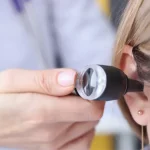
To keep one’s entire health and well-being in good standing, it is essential to have a solid understanding of thyroid diseases.
Whether you are dealing with thyroid issues on a personal level or are trying to find answers for a loved one, it is normal to feel confused and overwhelmed by all the information available.
This piece will shed light on symptoms, treatments, and lifestyle alterations that can have a huge impact on your overall health.
Thyroid Diseases
The thyroid gland is an essential organ that is important for regulating metabolism, energy levels, and a variety of other biological activities. Thyroid disorders comprise a spectrum of ailments that affect the thyroid gland regularly.
All of these thyroid disorders, which include hyperthyroidism, hypothyroidism, and autoimmune thyroid illnesses such as Hashimoto’s thyroiditis and Graves’ disease, are characterized by a disruption in hormone production, which results in a wide range of symptoms and problems.
Medical Symptoms and Warning Signs

It is of the utmost importance to recognize the signs of thyroid diseases to facilitate early detection and action.
Depending on the exact illness, symptoms may include things like exhaustion, fluctuations in weight, mood disorders, hair loss, and irregular menstruation periods. These indications and symptoms, meanwhile, can differ from person to person.
By familiarizing yourself with these warning signs, you will be able to swiftly seek medical evaluation and therapy that is appropriate for your condition.
Diagnostic Procedures and Medical Assessment
It is common practice to conduct a thorough evaluation to diagnose thyroid diseases. Physical exams, a review of the patient’s medical records, and individualized laboratory testing are common components of this evaluation. By monitoring TSH, T3, and T4 levels in the blood, thyroid function can be greatly improved.
Furthermore, imaging examinations such as ultrasounds can be utilized to assess the size and structure of the thyroid gland, which can be of assistance in the process of diagnosis and the formulation of treatment strategies.
Alternative Methods of Treatment and Management Strategies

Restoring hormonal equilibrium, alleviating symptoms, and addressing the underlying causes are the goals of the many treatment modalities administered for thyroid problems.
Hormone replacement therapy, antithyroid drugs, radioactive iodine therapy, and surgical intervention are all examples of conventional treatments that may be utilized in severe situations. The thyroid ablation procedure shows promise as a potentially beneficial therapeutic option for patients who suffer from hyperthyroidism, thyroid cancer, or thyroid nodules that are troublesome.
Alterations to one’s lifestyle, such as dietary alterations, skills for stress management, and regular exercise, can be complementary to medical interventions, so contributing to an overall improvement in one’s degree of well-being.
Prospective Complications and Risk Factors to Consider
Disorders of the thyroid that are not treated or that are not managed well can have a variety of repercussions, including negative effects on physical health, fertility, and quality of life.
Consequences may include cardiovascular problems, osteoporosis, thyroid nodules, and possibly thyroid cancer. Possible consequences include these.
To minimize these risks and maximize the outcomes for one’s health, it is essential to have a thorough understanding of the potential dangers and to adopt preventative actions using medical care and adjustments to one’s lifestyle.
Providing Instruction and Assistance
Keep in mind that you are not the only person struggling with thyroid issues, even though the difficulties may appear to be overwhelming.
In addition to providing information, assistance, and emotional support, it may be beneficial to seek advice from healthcare professionals, participate in support groups, and participate in online communities.
Through education, you will be able to advocate for your health, make decisions based on accurate information, and actively manage your illness to live a rewarding life.
Conclusion
As you gain more knowledge about your thyroid issue, your capacity to control it will also increase proportionately.
Be on top of your symptoms, get medical attention as soon as possible if something looks amiss, investigate the various treatment choices available to you, and don’t forget to make those adjustments to your lifestyle.
Furthermore, keep in mind that you are not the only one going through this; there is an entire community out there that is prepared to assist you in navigating the ups and downs of coping with thyroid issues.
About The Author:
Stacey Smith is a freelance health writer. She is passionate about writing about women’s health, dental health, diabetes, endocrinology, and nutrition and provides in-depth features on the latest in health news for medical clinics and health magazines.




